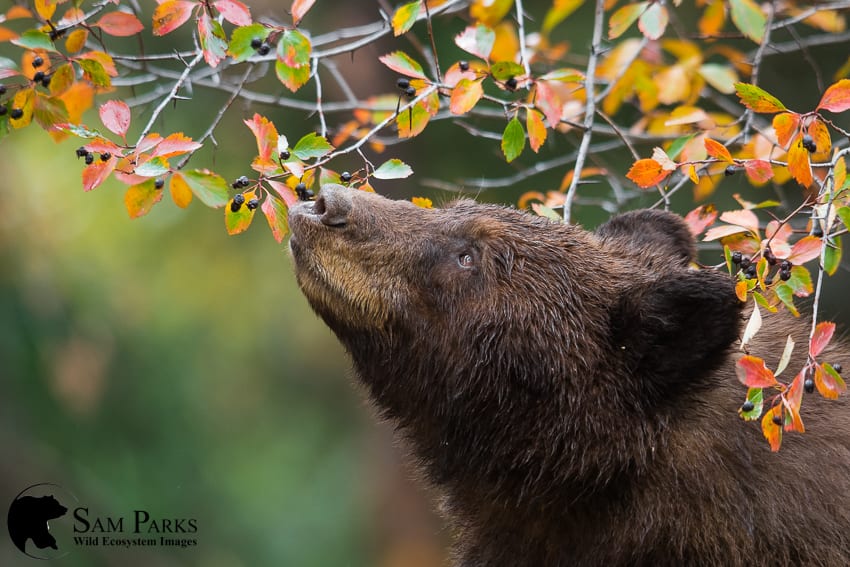Current work in wildlife, rivers, public lands, and climate
Press Releases
WildEarth Guardians scores big protections for wildlife in New Mexico
The settlement additionally requires public reporting of Wildlife Services’ activities in the state, including documenting non-lethal preventative measures employed by the program. These protections will remain in place pending the program’s completion of a detailed and public environmental review of its work.
The settlement agreement comes after WildEarth Guardians sued Wildlife Services in October 2020 over the program’s reliance on severely outdated environmental reviews of its work. The agreement, filed with the federal district court of New Mexico, ensures that Wildlife Services will no longer conduct any wildlife killing in New Mexico’s specially protected areas such as designated Wilderness, Areas of Critical Environmental Concern, and Wild & Scenic River corridors. The program will cease using sodium cyanide bombs (M44s) and other poisons on all public lands within the state. Additionally, the program will no longer kill beavers, which are increasingly seen as critical to mitigating the effects of widespread drought.
Notably, the agreement also mandates that a program district supervisor reviews all wolf depredation investigation reports before a livestock depredation determination is made in an effort to ensure appropriate safeguards for the endangered Mexican gray wolves that inhabit southwestern New Mexico.
“It’s past time for Wildlife Services to start grappling with 21st century science showing killing wildlife in hopes of preventing livestock losses doesn’t work, is often counterproductive, horribly inhumane, and robs native ecosystems of critically important apex carnivores,” said Jennifer Schwartz, staff attorney at WildEarth Guardians. “We’re glad our settlement kickstarts this process, while affording New Mexico’s wildlife some reprieve from the government’s archaic and cruel killing practices.”
The settlement agreement, finalized on March 11, 2021, includes multiple temporary provisions that will soon become permanent parts of New Mexico law as the result of the enactment of the Wildlife Conservation and Public Safety Act (“Roxy’s Law”) earlier this month. Roxy’s Law—championed by WildEarth Guardians and its allies in the TrapFree New Mexico coalition—bans the use of traps, snares, and poisons, on all public lands in the state of New Mexico. While Roxy’s Law is set to go into effect on April 1, 2022, the settlement agreement ensures that Wildlife Services refrains from using these devices on public lands immediately.
“The past several weeks have seen incredible wins for New Mexico’s native wildlife,” said Chris Smith, southern Rockies wildlife advocate for WildEarth Guardians. “With the climate crisis, drought, and human expansion all taking a toll on our state’s biodiversity, it’s time we stop seeing wildlife as something that needs to be killed and culled and instead see it as something that deserves protection and respect.”
Wildlife Services is culpable of killing thousands of animals in New Mexico each year including coyotes, cougars, prairie dogs, several varieties of fox, and even endangered Mexican gray wolves. Per federal law, Wildlife Services must use up-to-date studies and the best available science to analyze the environmental impact of their animal damage control program on New Mexico’s wildlife and native ecosystems. Under the agreement, Wildlife Services must provide an environmental analysis of the effects and risks of its wildlife-killing program in New Mexico by December 31, 2021.
The settlement agreement also requires Wildlife Services to significantly increase its overall transparency with the public by documenting and releasing—via its state website—detailed yearly reports of its wildlife “damage control” practices. This includes the number and type of animals captured and by which method, the number of requests for assistance and the reason given (livestock protection, health and safety, nuisance, etc.), and types of non-lethal preventative measures employed by Wildlife Services or the party requesting lethal control. This type of detailed information has previously only been available through formal Freedom of Information Act requests, which typically take many months, if not years, for USDA to fulfill.
“A public reporting requirement will compel Wildlife Services to be held accountable to the general public for its actions,” said Schwartz. “We hope that this motivates Wildlife Services to employ practices in line with the values of the public and embrace the use of scientifically verified non-lethal conflict prevention.”
Background
Wildlife Services is a multimillion-dollar federal program that uses painful leghold traps, strangulation snares, poisons and aerial gunning to kill wolves, coyotes, cougars, birds, and other wild animals. Most of the killing responds to requests from the agriculture industry.
The program reported killing more than 433,000 native animals nationwide in 2020. Nontarget animals, including pets and protected wildlife like wolves, grizzlies and eagles, are also at risk from the program’s indiscriminate methods.
Over the last five years, litigation by WildEarth Guardians and partners against Wildlife Services has resulted in settlement agreements and legal victories in Idaho, Montana, California, Nevada, Oregon, Washington, and New Mexico, all curbing the program’s slaughter of native wildlife and making the program accountable for its activities.

Large male black bear feeding on hawthorn berries during the fall. Photo by Sam Parks.